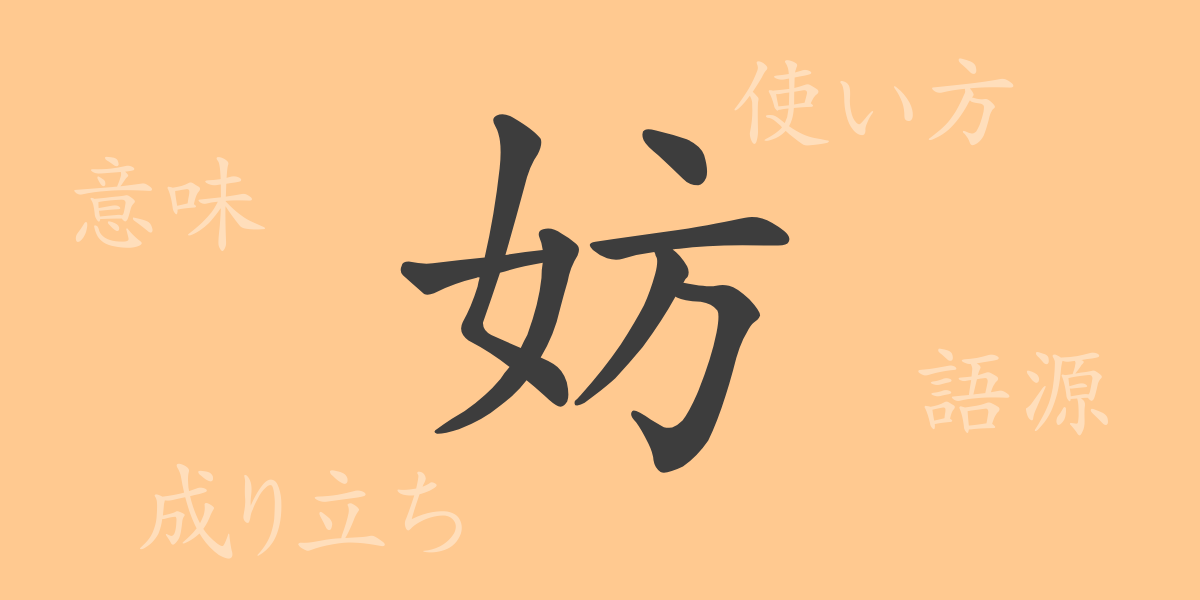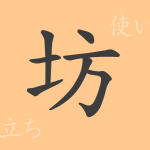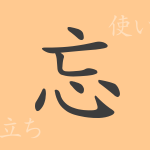Japan’s rich written culture includes many kanji (characters), each with its own unique meaning and history. In this article, we focus on one of Japan’s common kanji, “妨” (bō), delving into its etymology, modern usage, and the idioms and expressions that include this character. Understanding the meaning behind each kanji not only deepens your comprehension of the Japanese language but also influences your choice of words and expressions in writing.
The Etymology of 妨 (bō)
The kanji “妨” (bō) is derived from ancient Chinese pictographs. This character is composed of two parts: “女” (woman) and “方” (direction). Originally, it carried the meaning of obstructing a woman from doing something. Over time, its meaning expanded to generally signify “hindering” or “obstructing.” Thus, kanji reflect diverse cultural backgrounds in their formation process.
The Meaning and Usage of 妨 (bō)
In modern Japanese, the character “妨” (bō) is primarily used in the verb form “妨げる” (samatageru) and the noun form “妨害” (bōgai). Specifically, it refers to a state where there are obstacles or barriers to doing something, or actions that cause such a state. For example, it is commonly used in contexts like “計画を妨げる” (keikaku o samatageru – hinder a plan) or “交通の妨害” (kōtsū no bōgai – traffic obstruction).
Reading, Stroke Count, and Radical of 妨 (bō)
The basic information about the kanji “妨” (bō) is as follows:
- Reading: The on’yomi (音読み) is “ボウ” (bō), and the kun’yomi (訓読み) is “さまた.げる” (samatageru).
- Stroke Count: The character “妨” (bō) consists of 11 strokes.
- Radical: The radical of this kanji is “女” (onna – woman).
Idioms, Phrases, and Proverbs Using 妨 (bō)
Here are some idioms, phrases, and proverbs that include the character “妨” (bō):
- 妨害 (ぼうがい – bōgai): Hindering or obstructing the smooth progress of someone else’s actions or matters.
- 妨げる (さまたげる – samatageru): An act of making it difficult or impossible to do something.
- 無用の妨げ (むようのさまたげ – muyō no samatageru): An idiom meaning unnecessary obstacles or barriers.
These expressions are frequently used in daily conversations and business settings, becoming crucial elements for smooth communication.
Conclusion on 妨 (bō)
The kanji “妨” (bō) embodies a deep history and cultural essence from its origin to its modern usage. Understanding and appropriately using idioms and expressions that include this character can lead to richer Japanese language expression. We hope this exploration helps you rediscover the meaning behind each character and appreciate the profoundness of the Japanese language.

























